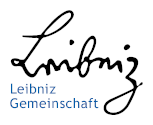- Das Institut
- Forschung
- Diktaturen im 20. Jahrhundert
- Demokratien und ihr historisches Selbstverständnis
- Transformationen in der neuesten Zeitgeschichte
- Internationale und transnationale Beziehungen
- Editionen
- Dissertationsprojekte
- Abgeschlossene Projekte
- Dokumentation Obersalzberg
- Zentrum für Holocaust-Studien
- Berliner Kolleg Kalter Krieg
- Publikationen
- Vierteljahrshefte
- Archiv
- Bibliothek
- Zentrum für Holocaust-Studien
- Aktuelles
- Termine
- Presse
- Neuerscheinungen
- Aus dem Institut
- Themen
- Reordering Yugoslavia, Rethinking Europe
- 75 Jahre Institut für Zeitgeschichte
- München 1972
- Confronting Decline
- Digitale Zeitgeschichte
- Zeitgeschichte Open
- Das Deutsche Verkehrswesen
- Bundeskanzleramt
- Demokratische Kultur und NS-Vergangenheit
- Geschichte der Treuhandanstalt
- Akten zur Auswärtigen Politik
- Dokumentation Obersalzberg
- Edition "Mein Kampf"
- "Man hört, man spricht"
- Newsletter
International Conference "Childhood at War and Genocide"

October 17 – 19, 2022 | 2 pm
Children’s Experiences of Conflict in the 20th Century – Agency, Survival, Memory and Representation
The mass of scholarly works on Jewish and non-Jewish child survivors and youth of the Nazi era, and the studies of the ways young survivors were treated by relatives, adoptive parents, social workers, medical staff, and respective states in the aftermath of the Second World War, is constantly growing. Still, large research gaps remain, especially concerning the German war in the East. In addition, specific histories of child survivors of other genocides in the twenty century and beyond are lacking. However, thanks to the recent endorsement of child-centered historical methods and interdisciplinary approaches, the experiences and memories of child survivors of the 20th century wars and genocides have also begun to be investigated. This offers us a new and vital opportunity for systematic and focused comparative studies of timely topics such as the role of a child’s gender and agency as well as different social groups and resources that enabled the children to survive; family status, gender, and adoption of orphaned children in the aftermath of war and genocide; and the child survivors’ official state status, rehabilitation, education, and displacement, among others.
The conference brings innovative contributions which tackle case studies of children during war and genocide together and gives room to new approaches and questions. Nicholas Stargardt will deliver the Keynote Lecture on “Restoring the subjectivities of children in the Holocaust” and argue for an approach to interpreting these children's subjectivities. The keynote lecture is a public in-person event, a registration is necessary via email until October 13: zfhs@ifz-muenchen.de.
The conference will take place in-person at the Leibniz Institute of Contemporary History, Munich, Germany with limited space available.
For more information see the Programme of "Childhood at War and Genocide"
The conference report is availabe here.


